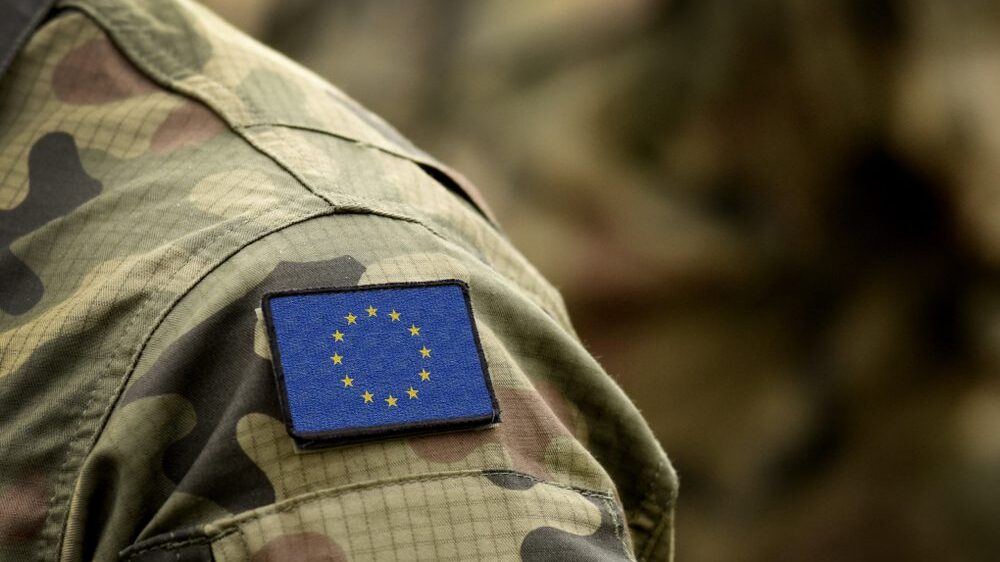
Nine EU member states on Thursday, May 4th called for reforming the bloc’s foreign policy decision-making, dropping the unanimity requirement and thus ending individual countries’ veto power, Euractiv wrote. Such a move, however, would be seen by others as a serious violation of sovereignty.
According to the joint statement released on Thursday, the aim of the reforms would be to “improve effectiveness and speed of our foreign-policy decision-making” in light of “Russia’s war of aggression against Ukraine and the growing international challenges the EU is facing.”
The signatories of the statement, who call themselves ‘the Group of Friends’, include Belgium, Finland, France, Germany, Italy, Luxembourg, Netherlands, Slovenia, and Spain.
According to them, instead of unanimous voting, foreign policy and defense-related decisions should be decided by qualified majority voting, which would require only 15 out of the 27 member states to be in agreement as long as they represent more than 65% of the EU’s total population.
Therefore, it is no surprise that the largest EU members are among those pushing for the change; qualified majority voting favors the most populous countries, such as France and Germany.
To strengthen the #EU as a global player, we need to reach common 🇪🇺 positions faster. Germany teams up with 🇧🇪🇫🇮🇫🇷🇮🇹🇱🇺🇳🇱🇸🇮🇪🇸 in a group of friends committed to make greater use of qualified majority voting in the common foreign and security policy. #qmv 1/2
— GermanForeignOffice (@GermanyDiplo) May 4, 2023
The statement also makes it clear that ‘the Group of Friends’ believes such a move could hold the secret to restoring Europe’s international prestige in the long run. It says that:
EU foreign policy needs adapted processes and procedures in order to strengthen the EU as a foreign policy actor, [while] improved decision-making is also key to making the EU fit for the future.
This notion is reminiscent of previous arguments for establishing a common European army, which has been opposed by some member states for the same reason giving up unanimity could be dangerous: who can guarantee that Brussels or the Group of Friends won’t abuse such a power vested in them?
Regardless, it’s no coincidence the statement was released now, as Brussels announced to pump €500 million into the European defense industry earlier this week. The initiative to boost the domestic arms production capabilities is part of Brussel’s three-track plan to help Ukraine by donating existing stockpiles and refilling them shortly, mobilizing a total of €3 billion in the process.
As the British journalist and author Mick Hume opined for The European Conservative, the defense industry boost and the push for centralizing the power over the EU’s foreign policy both serve the same reason: helping “the ‘dangerous fantasy’ of pan-European security forces—armed and commanded from Brussels—becoming a dangerous reality.” As Hume wrote:
Russia’s invasion of Ukraine provides EU leaders with a plausible pretext for their new ‘war economy’ policies. But let’s be clear, they have been working to turn their dream of a centralized EU security policy into reality for many years, from Juncker’s call for an EU army in 2015, through Chancellor Merkel and President Macron’s explicit endorsement of that idea in 2018, to the EU’s 2022 ‘Military Mobility 2.0’ action plan for the rapid movement of large-scale forces. If it wasn’t for the all-too-real war in Ukraine, they would no doubt have found some other excuse.
This also corresponds with a recent study done in five Western European countries, which shows that EU defense centralization is not only backed by the ambitions of Brussels’ political elite but there is a popular demand for it as well. Western Europeans are even in favor of stripping others of their veto power and the ability to secure opt-outs.
This is our key result. In EU défense, Western Europeans want to end unanimity, want to end opt-outs, want ambitious, large, EU level military forces financed by moving national defense expenditure at EU level. https://t.co/hM9jrswzwh
— Francesco Nicoli 🎓🇪🇺 (@FrancescoNicoli) May 5, 2023
Although ambitious, the nine countries are hardly enough to push through the voting reforms alone. While only a simple majority (14 countries) is needed to open negotiations on treaty changes, the final agreement would have to be signed off by all 27 member states unanimously. And rather than handing over another big portion of their sovereignty to Western Europe, most smaller member states would undoubtedly veto the proposal.
For those who stand to gain nothing from the reforms, eliminating the veto powers in such important matters is clearly seen as an undemocratic approach to EU decision-making. “The diversity of European countries is not a burden,” Austrian Chancellor Karl Nehammer said in Vienna on Thursday, defending unanimous voting in the Council, which has an “added value of democracy and diversity.”
Other critics were even more outspoken. According to the conservative think tank MCC Brussels—which published a paper warning of the dangers of abolishing the veto back in January—“the relentless, federalizing impulse of EU elites threatens the fundamental basis of the Union: independent states cooperating on the basis of mutual respect for their differences.”
Yet more calls to abolish unanimity in foreign policy for the EU.
— MCC Brussels (@MCC_Brussels) May 5, 2023
The relentless, federalising impulse of EU elites threatens the fundamental basis of the Union: independent states cooperating on the basis of mutual respect for their differences. https://t.co/TmVMRJgvlJ
